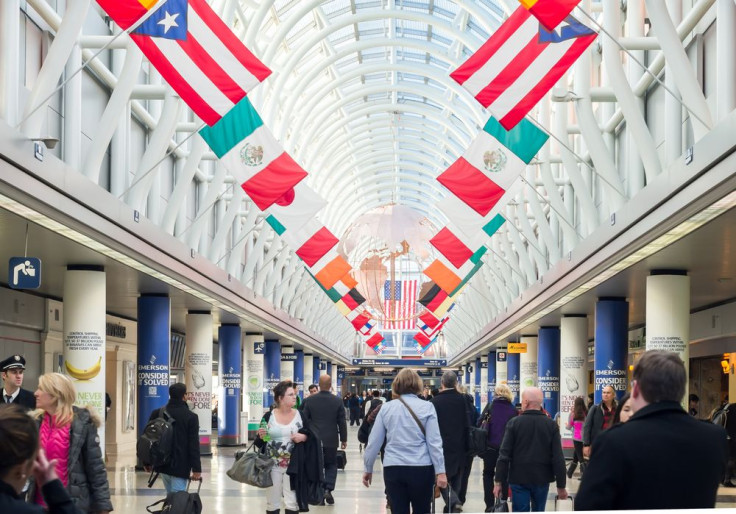Ebola Is Terrorizing Americans, But There's Little To Fear; Poll Shows 27% Consider Outbreak A 'Major Threat'

Americans are getting more and more anxious about an Ebola outbreak in the U.S., even as health officials say it's highly unlikely. A new survey by Harris Poll and HealthDay reveals that the percentage of Americans who see the disease as a major public health threat doubled in less than a month to 27 percent.
The growing worry follows the death of Thomas Eric Duncan, a Liberian man who traveled to Dallas to visit relatives before developing symptoms. His was the first travel-associated case of the disease in the United States, the Centers for Disease Control and Prevention reported. But there is an incredible amount of ignorance about how Ebola works and how much risk it poses to any one individual. "Ebola is an agent that evokes a lot of fear, and can result in societal disruption," the Mayo Clinc's Dr. Pritish Tosh told HealthDay. "There's a reason why it's considered a possible bioterrorism agent. So any time you have any cases in the United States, there is a heightened amount of anxiety."
But fear and anxiety are winning out over understanding and reason; the Harris poll tells us as much. "Three out of four of those polled said they are concerned that people carrying Ebola will infect others before showing symptoms themselves." This is a medical impossibility. The virus can only spread from one symptomatic person to another. In Duncan's case, no one on his plane was at any risk because he only showed symptoms several days after arriving in Texas.
The symptoms include fever, vomiting, muscle pain, diarrhea and, most infamously, unexplained bleeding. But the odds of becoming infected, which can only happen through contact with the fluids of someone exhibiting these symptoms, are extremely low. In the three hardest-hit countries — Guinea, Liberia, and Sierra Leone — the proportion of cases when compared to the population is 0.00038. Meanwhile, AIDS kills 1.2 million people every year, and malaria kills 627,000.
The risk of contracting Ebola is so low in the United States that most people would have to go out of their way to put themselves in any danger. For instance, they could touch bats and monkeys, and their blood. Or they could visit the Ebola ward of a West African hospital. The CDC warns, "Do not touch the body of someone who has died from Ebola." In America, that would be impossible; Duncan was cremated.
Nonetheless, according to the Harris poll, fear has crippled a quarter of America's flying public, who say they are canceling or curbing their Thanksgiving travel plans because of Ebola. This despite the fact airports are now taking great precautions to make sure travelers are safe and that the disease doesn't enter the country. They're taking the threat, however minute, very seriously so that the rest of us don't have to.



























